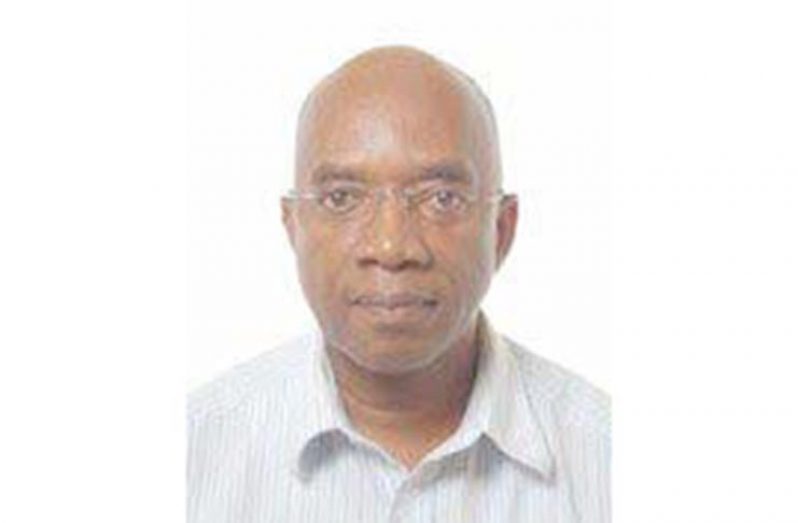THE importance of and need for strong civil society involvement in the monitoring and consultations over the oil and gas sector, to ensure that the average Guyanese benefits, was emphasised by economist, Dr. Desmond Thomas, during a virtual panel discussion last Tuesday.
Organised by University of Guyana (UG) Growth in a Resource-abundant Economy and Environment (GREEN) Institute, the panel discussion was a follow up to an earlier presentation by UCLA Professor, Michael Ross, which focused on “The Resource Curse and Democracy: Lessons for Guyana”.
“The disconnect between production of oil and experience of persons in different sectors is at the heart of the issue of the resource curse. The only hope is that we have a better experience with economic and social policy,” Thomas noted, as he underscored the need for civil society involvement.

“Our civil society needs to be better organised, better formalised in representing the interest of citizens. In this regard the Guyanese social landscape is dominated by too far an extent the political parties,” he further added.
A former Lead Economics Specialist at the Inter-American Development Bank in Washington DC, Thomas was the first speaker among a panel that also included Senior Lecturer in the Department of Government and International at UG/Berbice Campus, Dr. Rishi Thakur; Institute of Gender Studies Director, Dr. Pauline Bullen; along with Senior Lecturer in Economics at the University of Brighton, Dr. Timothy Laing.
Thomas noted that with Guyana having an abundance of natural resources such as gold, bauxite, and manganese, this will not be the first time the country is involved in exploiting natural resources, notwithstanding being in a different sector.
Nonetheless, the economy has struggled over the years to rise out of being a developing country. As such the powers that be must strongly consider how oil and gas sectors have been handled by other countries.
“This is not a new topic. It is important for us not to repeat the mistake of others. Yet given the weaknesses such as political instability and weak institutions we may be set up to experience the worst effects of the resource curse,” Thomas posited
The “Resource Curse” is a term used to describe situations experienced by countries rich in natural resources, where despite the abundance of resources the wealth is not reflected in the economic growth or development of the nations.
Dr. Laing during his presentation noted that this will not be the first time that Guyana will be overlooking large sums of money, referencing the Guyana REDD+ Investment Fund whereby Guyana received receive up to US$250 million from Norway.
“Based on the Norwegian money, Guyana had tremendous problems spending that money on anything worthwhile. If the government can’t spend the [oil] money on anything productive what does that mean for the Guyanese population,” Dr. Laing questioned.
Guyana first discovered oil in 2015, when ExxonMobil had its first significant oil find at the Liza-one well, which began its first production in December 2019. Since the first discovery, Exxon has since struck 15 other discoveries, with an estimated 8 billion barrels.
This year, Guyana sold its first lift of oil for $11.4 billion (US$55 million), while the second lift sold for approximately US$35 million.
Notwithstanding falling oil prices due to the COVID-19 pandemic, and incomplete general and regional elections, Guyana’s economy was projected to still grow by as much as 51.7 per cent, according to World Bank projections.
“Yet if you ask the teacher, nurse, minibus driver, ask them how they are doing in 2020 they will probably tell you they are not experiencing any major increase,” Thomas stressed.
He added that: “A major point is that the channel by which a country typically benefits from oil resource exploitation is via the government. Higher revenue for the government and enhanced role for the government. It has negative implications for weakened democratic institutions, increased corruption, nepotism and people spending money that seems to come easy. [This] can have a negative impact on the overall results.”
Bridging of that divide would need institutional strengthening, beginning with reform of the electoral system.
Thakur, during his presentation, added to Thomas’ presentation on the need for institutional strengthening.
“Our public institutions are in a terrible mess and we need to treat with them urgently. I want to place emphasis on the weakness of our political institutions. Increasingly it is hard for any citizen to have any hope that our public institutions are fair in the services they provide,” Thakur stated.
Bullen, during her presentation, noted the need for the populace to empower itself to ensure that the citizens are the primary beneficiaries of the proceeds of the oil wealth.
“How do we get nationwide equity in a system where persons have trouble adapting the principle that I am my sister’s keeper. How do people accepting a status quo empower themselves to effect policy and planning reforms?” she asked.




.jpg)










